Graduation is a milestone moment that signifies the end of one chapter and the beginning of a new one. As we stand on the brink of this exciting new phase in our lives, it is natural to feel a mix of emotions – pride, gratitude, and perhaps a little bit of nervousness about what the future holds.
But no matter what the future holds, we can all look back with pride on the hard work and determination that brought us to this point. And as we embark on the next stage of our journey, we do so with the support and encouragement of our teachers, friends, and loved ones. It is with this sense of community and purpose that we approach the task of delivering a graduation speech – a chance to share our memories, our aspirations, and our gratitude with those who have been with us every step of the way.
Table of Contents
Graduation Speech Templates
Inspire and captivate your audience with our extensive collection of free printable Graduation Speech templates. Craft a memorable and impactful speech for this momentous occasion, whether you’re addressing graduates, faculty, or parents. Our templates offer a structured format to help you organize your thoughts, convey gratitude, share wisdom, and reflect on the journey of achievement. Customize the templates with your personal anecdotes, motivational quotes, and heartfelt messages to make your speech truly unique. Download now and deliver a graduation speech that will leave a lasting impression on your audience.
What Is a Graduation Speech?

A graduation speech is a speech that is typically given at a graduation ceremony, usually by a student or a faculty member. The purpose of the speech is to celebrate the achievements of the graduating class and to offer words of inspiration and encouragement as they embark on the next phase of their lives.
Graduation speeches may also include memories of the time spent in school, thanks to teachers and mentors, and reflections on the lessons learned during the educational journey. The tone of a graduation speech can vary, but it is typically uplifting and celebratory, and may include humor, personal anecdotes, and words of wisdom. The goal of a graduation speech is to inspire and motivate the graduating class as they move forward into the next chapter of their lives.
What should you write about in your graduation speech?
There are many things that you can write about in your graduation speech. Some ideas might include:
Your personal journey through school: You could talk about your own experiences, challenges, and achievements during your time in school. You could also share any memorable moments or anecdotes that you want to share with your classmates.
Your gratitude for teachers and mentors: Graduation is a great opportunity to thank the teachers and mentors who have supported you throughout your educational journey. You could express your appreciation for their guidance and encouragement.
Words of wisdom: Graduation speeches are often seen as an opportunity to offer words of wisdom to your peers. You could share any insights or lessons you have learned during your time in school that you think could be helpful to others.
Your future plans: You could talk about your plans for the future and what you hope to accomplish. You could also share any goals or aspirations you have for your career or personal life.
Encouragement: Graduation can be a scary time, as it marks the end of a familiar chapter and the beginning of something new. You could use your graduation speech to offer encouragement and support to your peers as they navigate this transition.
Remember to keep your speech positive, uplifting, and focused on the achievements of your class. You can also include some humor and personal anecdotes to make your speech more engaging and memorable.
Essential Elements of a Graduation Speech
There are several essential elements that you should consider when writing a graduation speech. These include:
Introduction: Start your speech by introducing yourself and thanking the audience for coming to the graduation ceremony. You can also set the tone of your speech by stating the theme or main message you want to convey.
Body: This is the main part of your speech, where you will present your ideas and insights. You can organize the body of your speech around different themes or topics, such as your personal journey through school, your gratitude for teachers and mentors, or your future plans.
Conclusion: End your speech by summarizing the main points you have made and offering any final thoughts or words of encouragement. You could also end with a quote or a call to action.
Tone: The tone of your graduation speech should be positive and uplifting, with a focus on celebrating the achievements of your class. You should aim to be inspiring and motivating, rather than negative or critical.
Length: Keep your speech concise and to the point. Graduation speeches are typically between 5-10 minutes in length, so aim to keep your speech within this time frame.
Personal anecdotes: Adding personal anecdotes can help to make your speech more engaging and memorable. You can share stories or experiences that are relevant to your theme or message.
Humor: Including a bit of humor can help to lighten the mood and make your speech more enjoyable for the audience. Just be sure to keep your jokes appropriate and respectful.
Practice: Practice your speech several times before delivering it. This will help you to feel more confident and comfortable when giving your speech.
How To Write a Graduation Speech
Writing a graduation speech can be a daunting task, but with some careful planning and a bit of creativity, you can craft a speech that is memorable and meaningful. Here are some tips for how to write a graduation speech:
Start by brainstorming ideas: Take some time to think about your experiences in school, any lessons you have learned, and any advice you would like to share with your peers. You could also consider including any memorable anecdotes or stories from your time in school.
Determine your main message: What do you want to say to your peers in your graduation speech? Do you want to inspire them to pursue their dreams, or offer words of encouragement as they navigate the next phase of their lives? Determine your main message and use it as the foundation for your speech.
Organize your ideas: Once you have a list of ideas, start organizing them into a logical structure. You could divide your speech into different sections, such as an introduction, body, and conclusion.
Write your introduction: Your introduction should grab the attention of your audience and set the tone for your speech. You could start by thanking the audience for coming, introducing yourself, and stating your main message.
Develop your body: The body of your speech is where you will present your ideas and insights. Use specific examples and anecdotes to illustrate your points and make them more relatable to your audience.
Conclude your speech: In your conclusion, summarize the main points you have made and offer any final thoughts or words of encouragement. You could also end with a quote or a call to action.
Edit and revise: Once you have a rough draft of your speech, take some time to edit and revise it. Look for any awkward phrases or sentences that could be improved, and eliminate any unnecessary words or ideas.
Practice, practice, practice: It is important to practice your speech several times before delivering it. This will help you to feel more confident and comfortable when giving your speech.
Conclusion
In conclusion, a graduation speech is a significant and memorable moment for both the graduating class and the speaker. It is an opportunity for the speaker to impart wisdom, share experiences, and motivate the graduates to continue pursuing their goals and dreams.
It is also a time for the graduating class to reflect on their journey and look forward to the future. A well-written and delivered graduation speech can inspire and empower the graduates to make a positive impact in their communities and the world.
FAQs
What is the most important message of a graduation speech?
The most important graduation speech message is to inspire graduates to appreciate how far they’ve come, feel proud of their accomplishments, and look ahead with hope and optimism at the exciting possibilities their future holds. Remind them their education has equipped them to achieve their dreams and make a positive impact.
What do I say in a graduation speech?
When giving a graduation speech, focus on sharing:
- Congratulations and well done recognizing graduates’ achievements.
- Inspiration about their bright futures and potential ahead.
- Highlights of memories from their educational journey.
- Stories and examples relevant to the graduates.
- Messages about pursuing their dreams or making a difference.
- Wisdom and life lessons that will help graduates.
- Gratitude for those who helped along the way.
- Encouragement to work hard and believe in themselves.
What is the best graduation speech?
The best graduation speeches share:
- Personalized messages that resonate with the specific graduates.
- Meaningful quotes, insights, and advice.
- Uplifting stories and memories about the graduate’s journey.
- Humor and a relatable, authentic tone.
- Moments that spark emotions like motivation, nostalgia, camaraderie.
- Appreciation for all who helped support the graduates.
- Optimism and encouragement for the future.
What are good quotes for graduation?
Some inspiring graduation quotes are:
“The future belongs to those who believe in the beauty of their dreams.” – Eleanor Roosevelt
“Education is the most powerful weapon which you can use to change the world.” – Nelson Mandela
“Graduation is not the end; it’s the beginning.” – Orrin Hatch
“Trust yourself. Create the kind of self that you will be happy to live with all your life.” – Golda Meir
“Today is your day. You’re off to great places! You’re off and away!” – Dr. Seuss








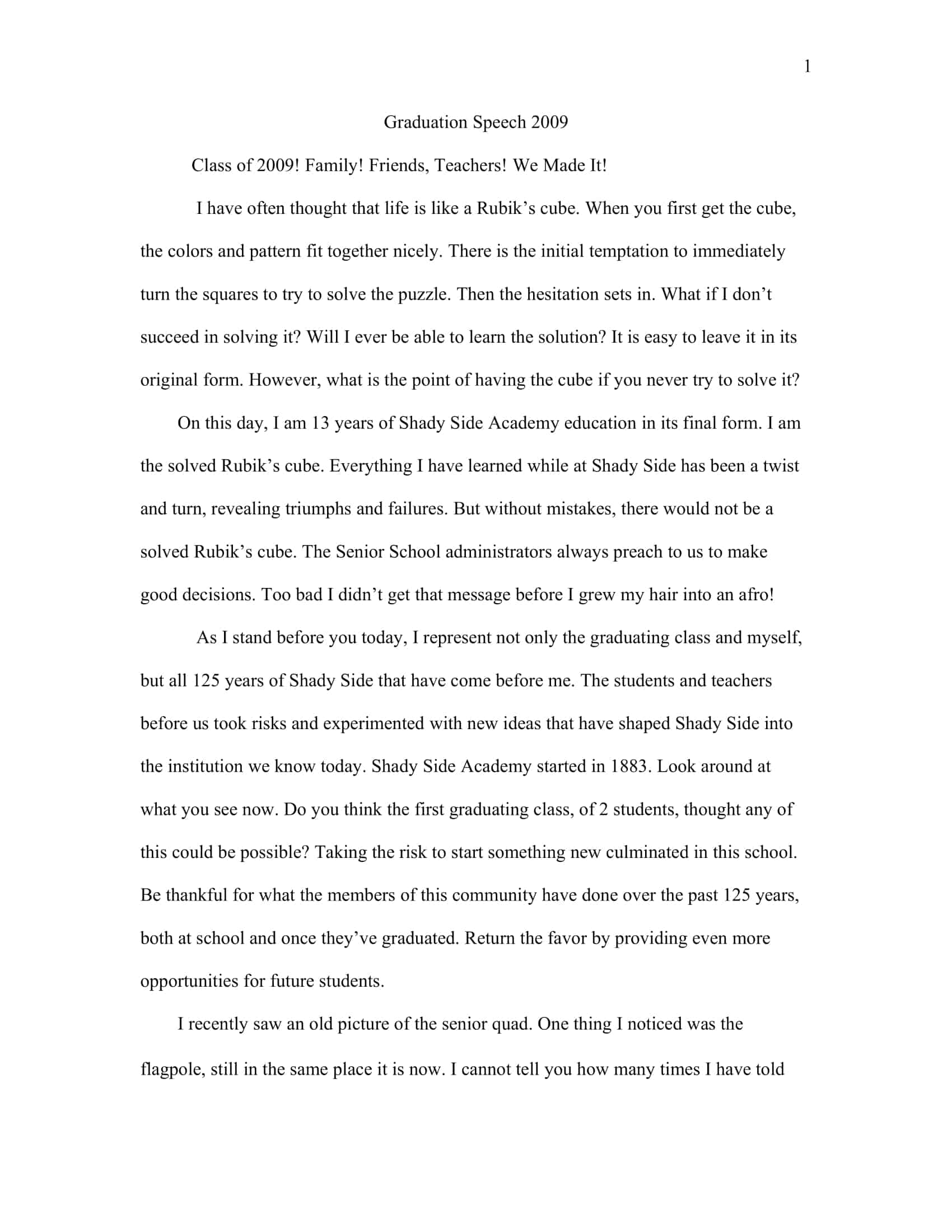

















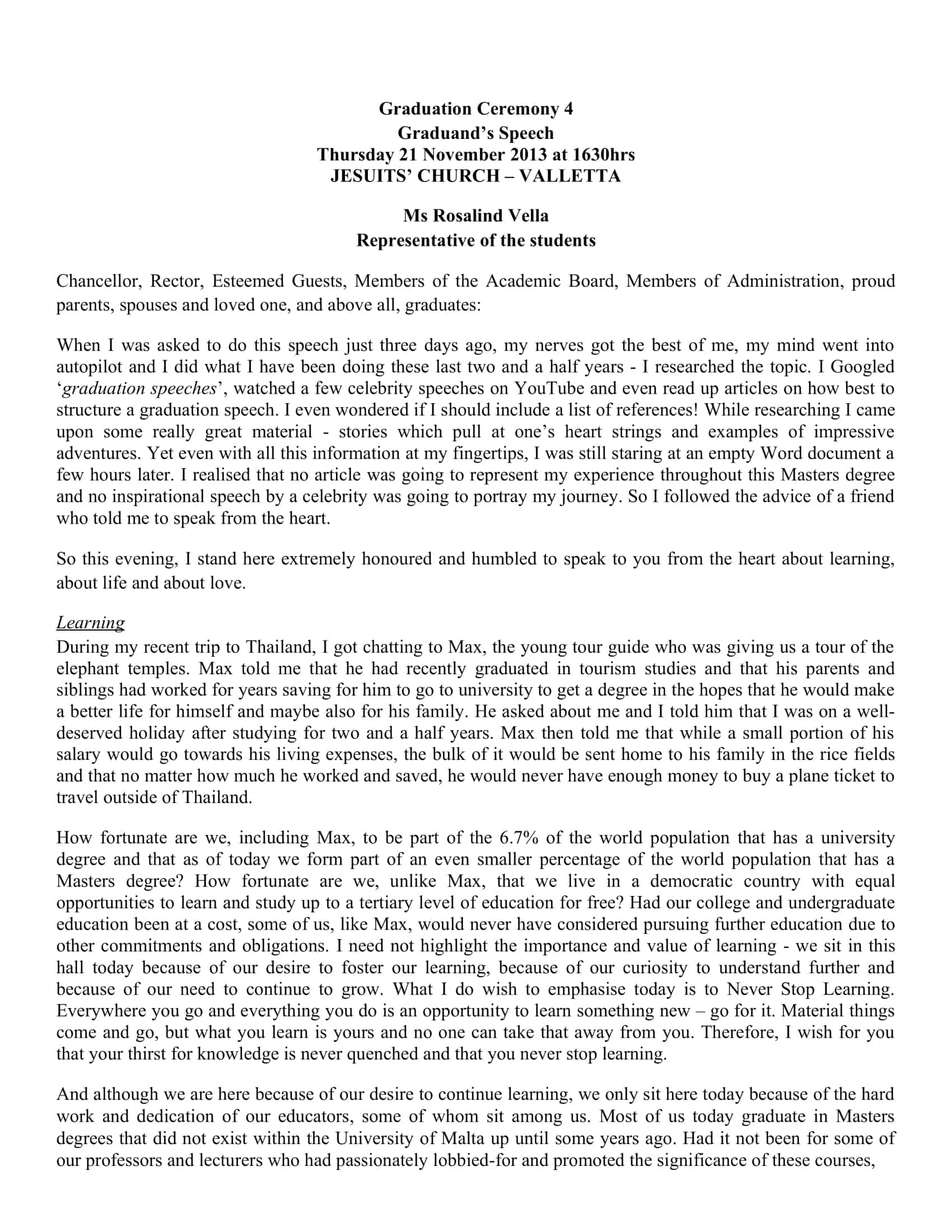











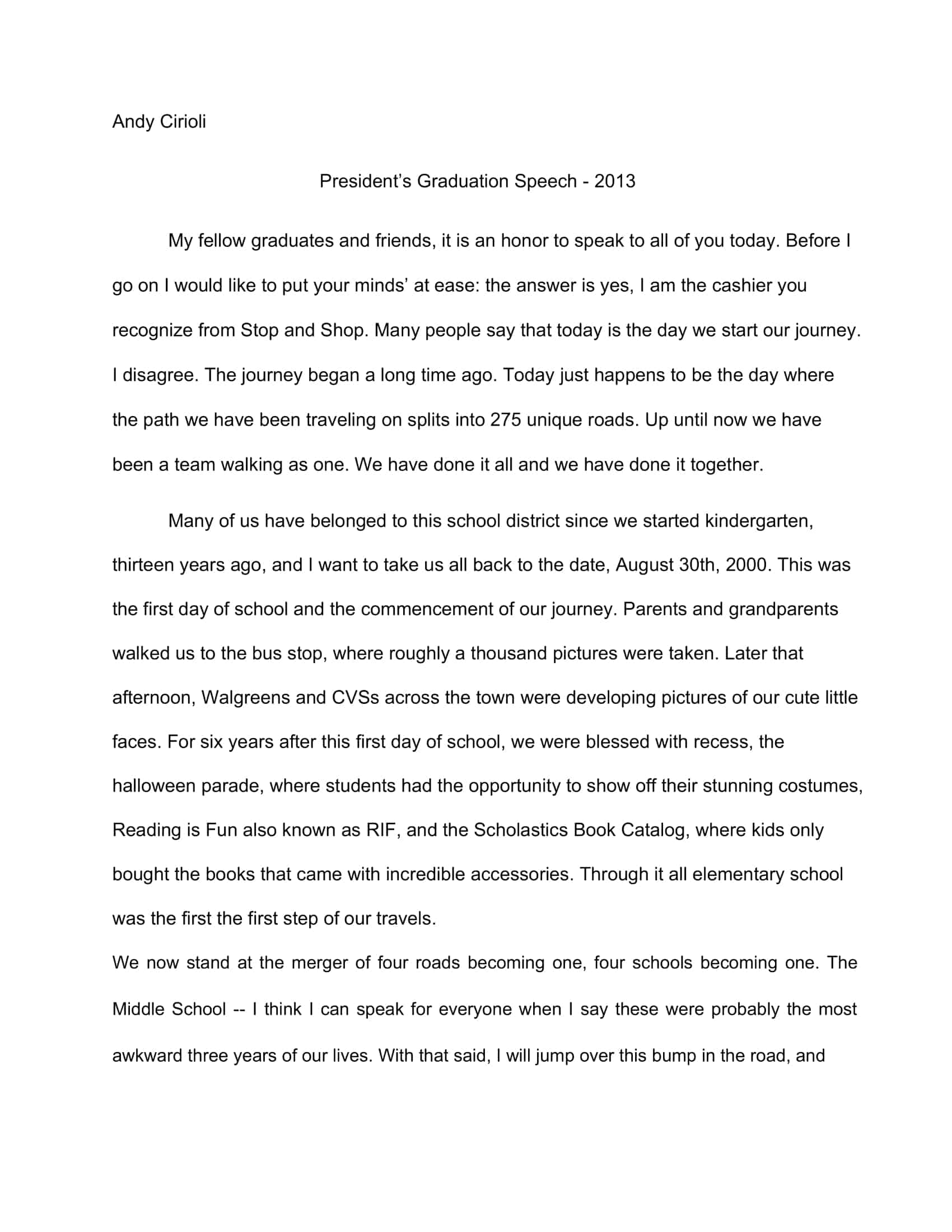
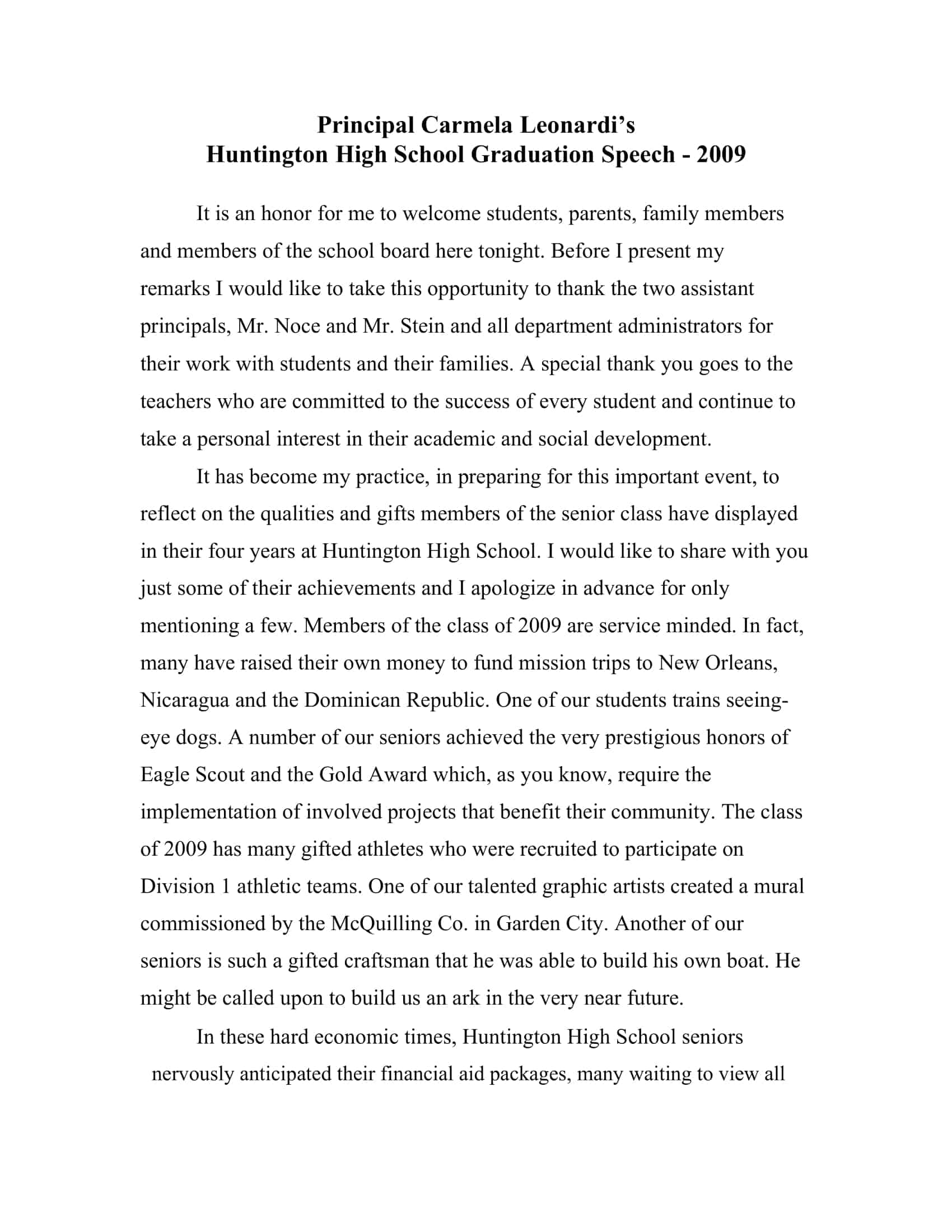



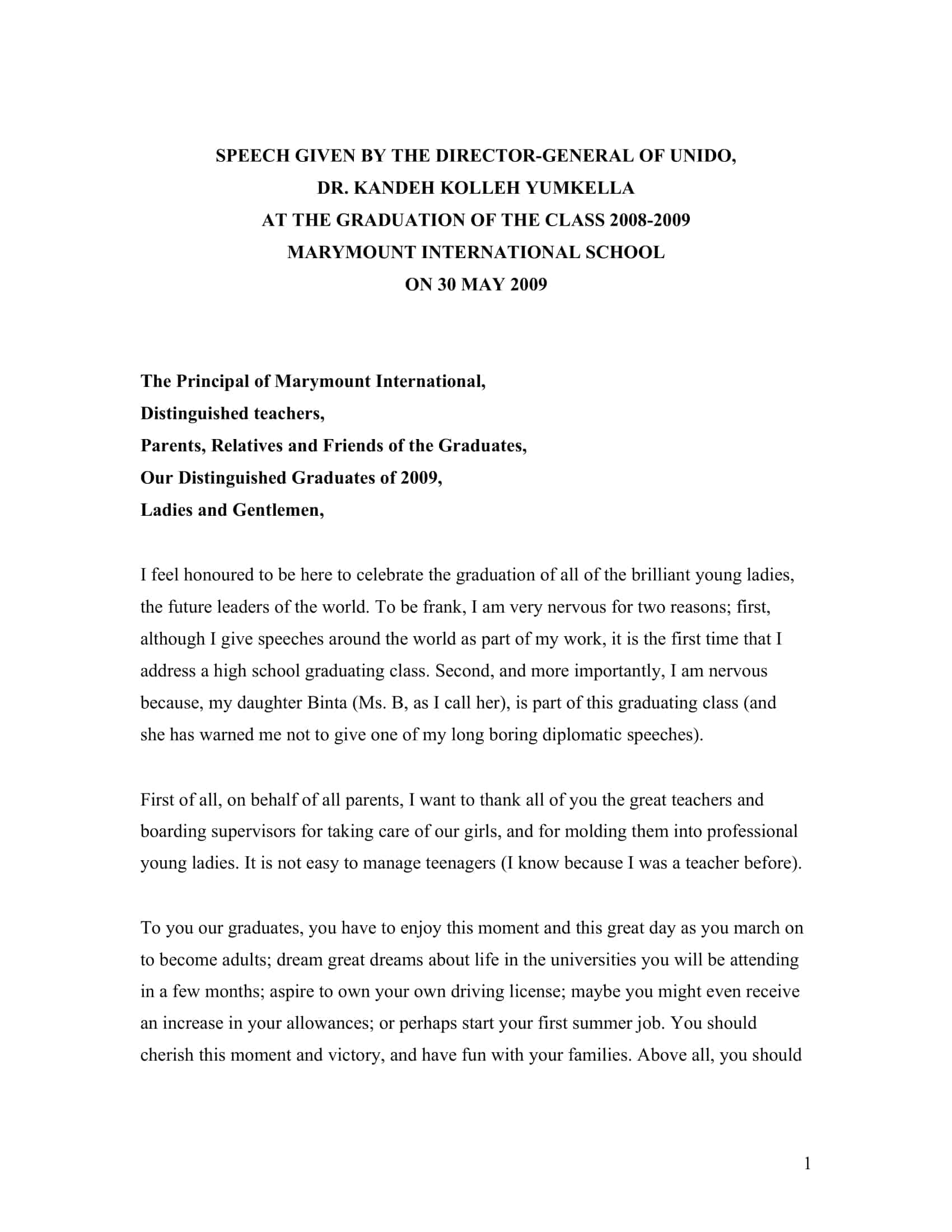
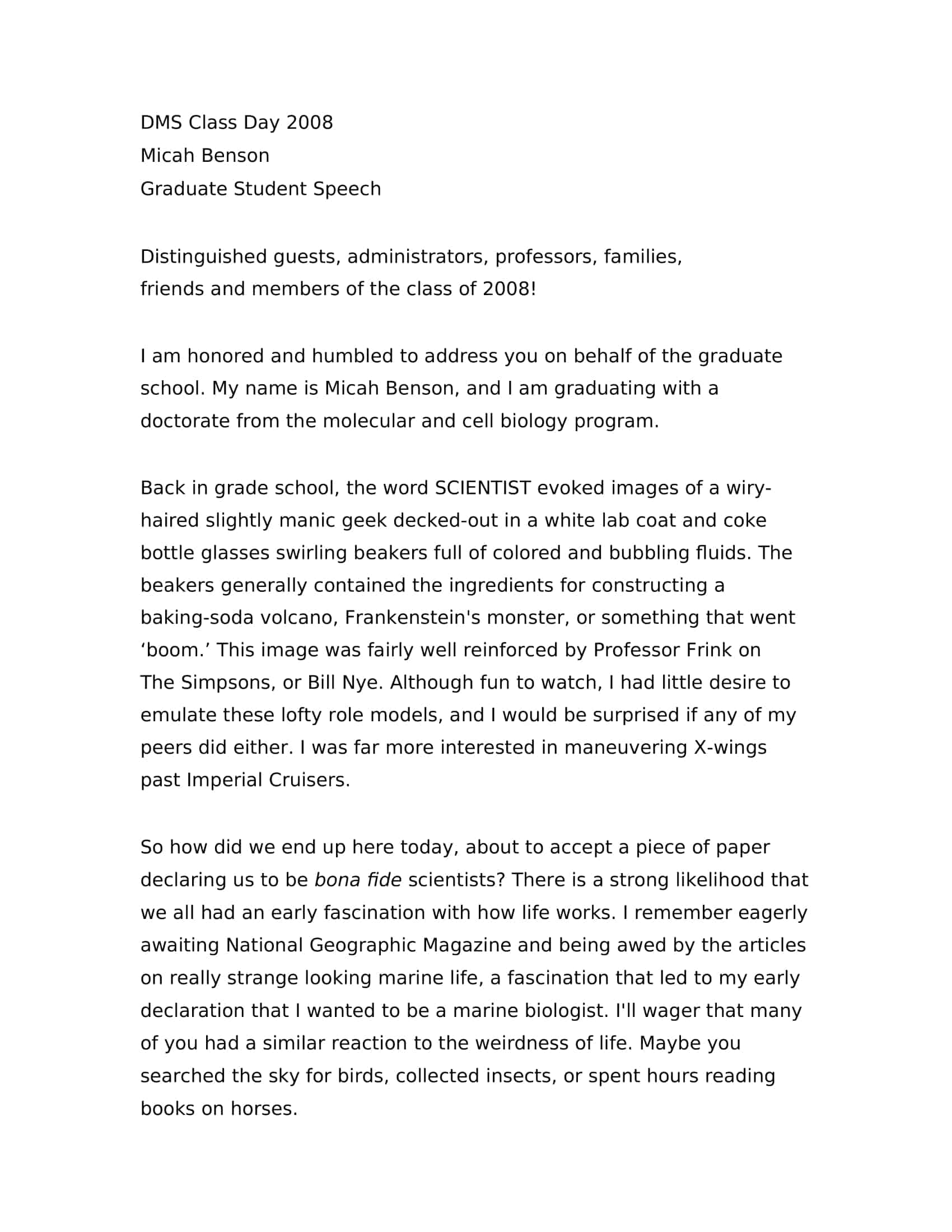



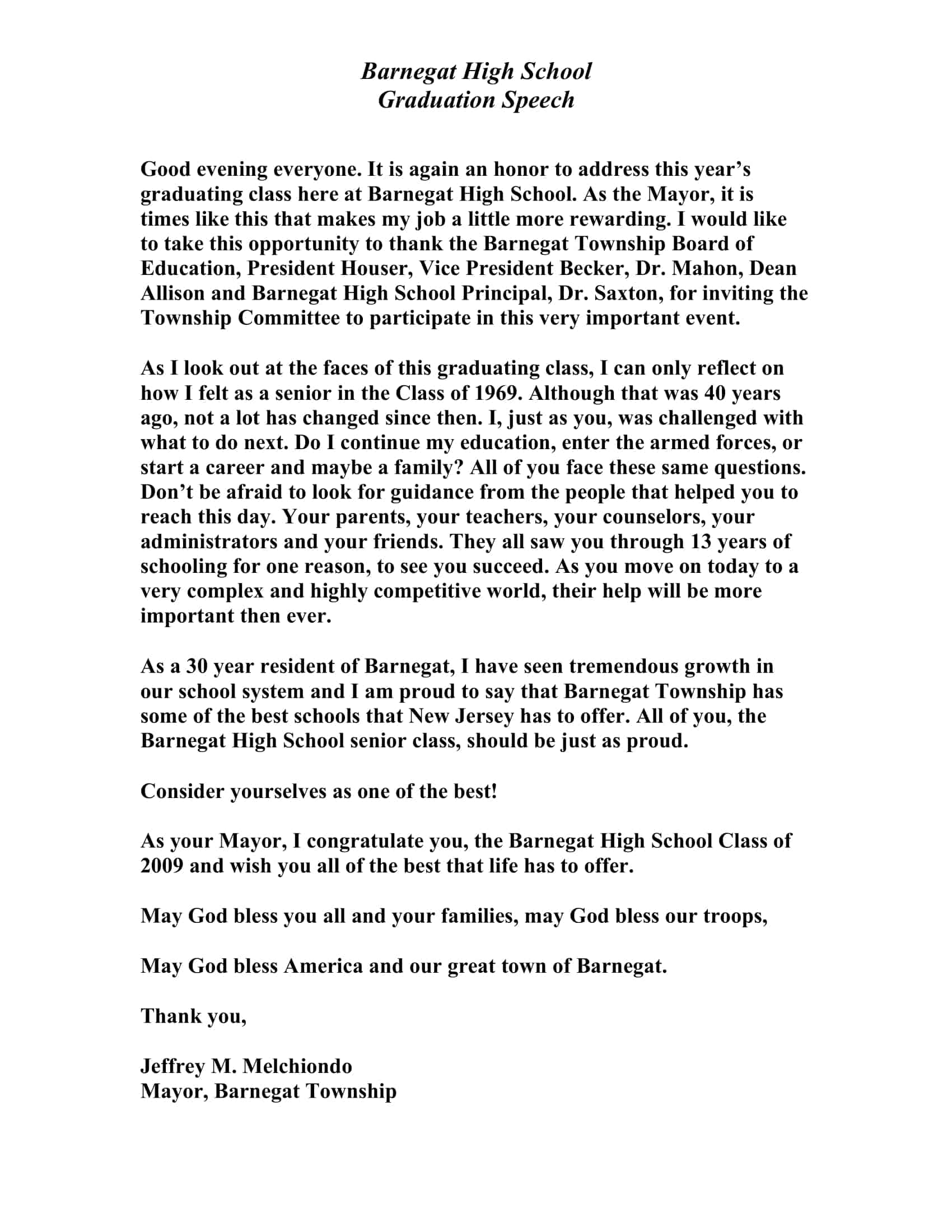

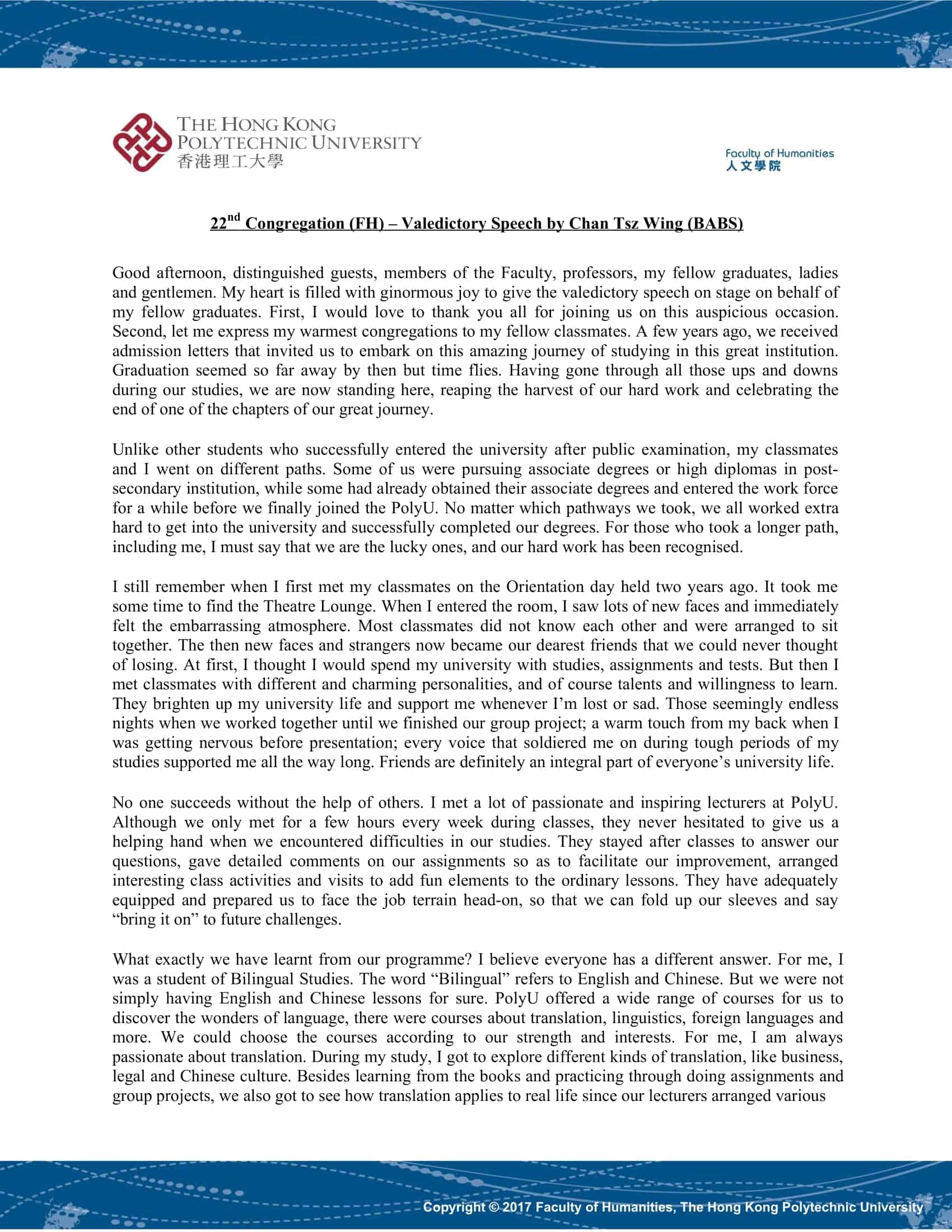
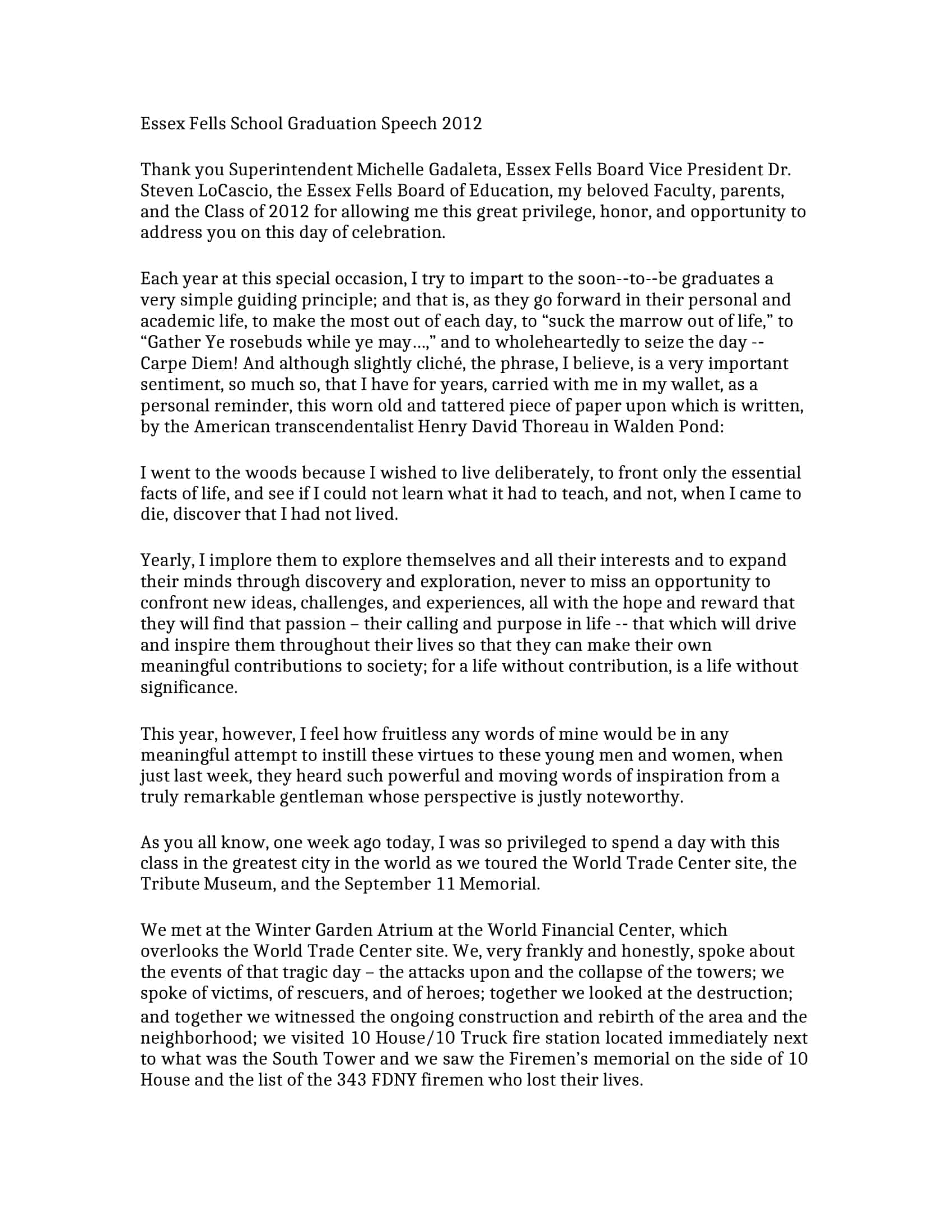
![%100 Free Hoodie Templates [Printable] +PDF 1 Hoodie Template](https://www.typecalendar.com/wp-content/uploads/2023/05/Hoodie-Template-1-150x150.jpg)
![Free Printable Food Diary Templates [Word, Excel, PDF] 2 Food Diary](https://www.typecalendar.com/wp-content/uploads/2023/05/Food-Diary-1-150x150.jpg 150w, https://www.typecalendar.com/wp-content/uploads/2023/05/Food-Diary-1-1200x1200.jpg 1200w)
![Free Printable Roommate Agreement Templates [Word, PDF] 3 Roommate Agreement](https://www.typecalendar.com/wp-content/uploads/2023/06/Roommate-Agreement-150x150.jpg)
